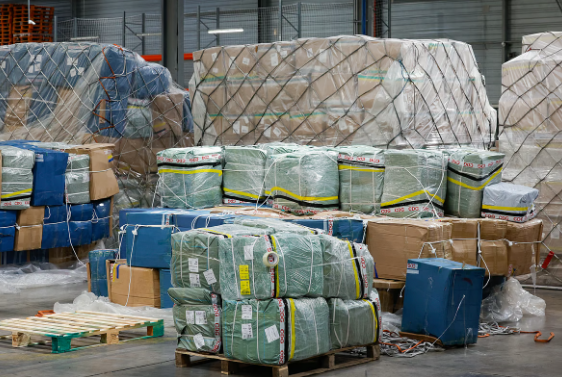The head of the United Nations nuclear watchdog, Rafael Grossi, stated on Wednesday that Iran’s Parchin site is not classified as a nuclear facility, following Israeli claims that it targeted a component of Tehran’s nuclear program in an October strike.
“We don’t have any information that would confirm the presence of nuclear material at Parchin,” Grossi said during a press briefing in Vienna. While acknowledging that the site “could have been involved in the past in some activities,” he emphasized, “As far as the IAEA is concerned, we do not see this as a nuclear facility.”
Grossi refrained from commenting on the nature of the reported strike, leaving such judgments to military authorities. “I leave it to those military decision-makers to judge and characterize places,” he added.
Israeli Prime Minister Benjamin Netanyahu, addressing the Israeli parliament on Monday, confirmed that the late October attack targeted Iran’s nuclear program. “It has been published that a certain component of their nuclear program was hit in this attack,” Netanyahu said, without elaborating on specific details. He noted, however, that the program’s overall capabilities remain operational.
Reports from U.S. news outlet Axios, citing unnamed U.S. and Israeli officials, claimed the attack destroyed an “active, top-secret nuclear weapons research facility” at Parchin. The site is located approximately 50 kilometers southeast of Tehran and has been linked to controversial activities in the past.
Israel has consistently accused Iran of pursuing nuclear weapons, a charge Tehran denies, insisting its nuclear program is for peaceful purposes. The attack is part of a long-standing campaign by Israel to counter what it perceives as Iranian threats, with repeated warnings against allowing Tehran to achieve nuclear weapon capability.
The International Atomic Energy Agency (IAEA) has been involved in monitoring Iran’s nuclear activities under international agreements. Grossi’s remarks underline the agency’s technical stance on Parchin, contrasting with the geopolitical implications of the strike.
The incident has added tension to an already volatile regional dynamic, with ongoing disputes over Iran’s nuclear ambitions and Israel’s preventive measures. The strike, if verified as targeting nuclear-related components, could further complicate international diplomatic efforts aimed at reviving the 2015 Iran nuclear deal, known as the Joint Comprehensive Plan of Action (JCPOA).
As the dust settles on the reported attack, the incident underscores the high stakes and persistent mistrust surrounding Iran’s nuclear program, with no immediate resolution in sight.


